Most of this month’s (six) DNFs ended up being books that couldn’t get me in my Feels – that didn’t keep me engaged. But I can never be sure if the book is actually flat, or if I’m just reading it at the wrong time…so take a pinch of salt with these!
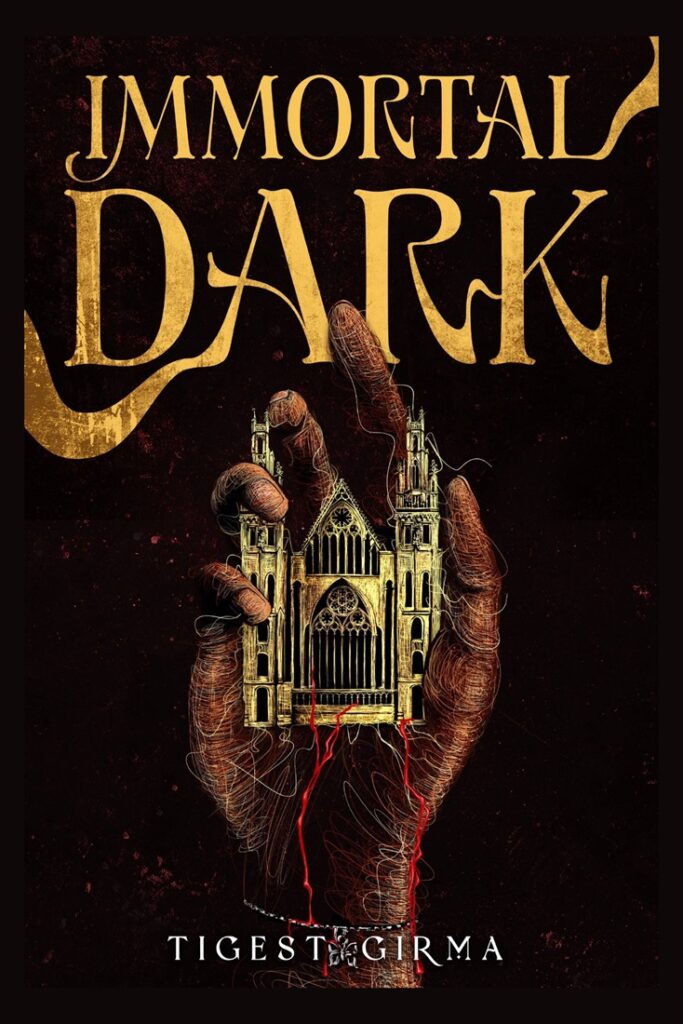
Genres: Fantasy, Contemporary or Urban Fantasy, YA
Representation: Black MC
Protagonist Age: 19
ISBN: 1444974378
Goodreads

The Cruel Prince meets Ninth House in this dangerously romantic dark academia fantasy, where a lost heiress must infiltrate an arcane society and live with the vampire she suspects killed her family and kidnapped her sister.
It began long before my time, but something has always hunted our family.
Orphaned heiress Kidan Adane grew up far from the arcane society she was born into, where human bloodlines gain power through vampire companionship. When her sister, June, disappears, Kidan is convinced a vampire stole her—the very vampire bound to their family, the cruel yet captivating Susenyos Sagad.To find June, Kidan must infiltrate the elite Uxlay University—where students study to ensure peaceful coexistence between humans and vampires and inherit their family legacies. Kidan must survive living with Susenyos—even as he does everything he can to drive her away. It doesn’t matter that Susenyos’s wickedness speaks to Kidan’s own violent nature and tempts her to surrender to a life of darkness. She must find her sister and kill Susenyos at all costs.
When a murder mirroring June’s disappearance shakes Uxlay, Kidan sinks further into the ruthless underworld of vampires, risking her very soul. There she discovers a centuries-old threat—and June could be at the center of it. To save her sister, Kidan must bring Uxlay to its knees and either break free from the horrors of her own actions or embrace the dark entanglements of love—and the blood it requires.
:edited to add: I have since learned that the author is Ethiopian and her prose style might be due to her speaking/being influenced by other languages, which, you know, fair. I still didn’t enjoy it, but that’s probably an issue of my taste/unfamiliarity with this style, rather than the prose actually being objectively bad. Do with that what you will. I wrote this review before I knew that.
I made it through the prologue and two chapters before I wanted to throw it across the room.
Well, no – I wanted to throw it across the room after the second paragraph of the prologue. But I stuck it out until I couldn’t.
I can’t make any conclusions about the characters or plot etc after reading so little – but I couldn’t stand the prose.
This map was one of the dean’s most favorite treasures
‘most favorite’? This was the second paragraph, and I stopped dead, because it just sounds wrong. There’s actually quite a bit of debate over whether or not it’s grammatically correct – some people say yes, some say no – but I couldn’t care less about grammar, I care about the sound of it, the rhythm you’re making with your prose. And this is not great.
She never could forgive such a loss.
…seriously, why not just say ‘she could never forgive’? What is the purpose of flipping the words around like that? Is it deliberate, and if so, what’s the goal? Is this like Apple, doing stuff to Be Different rather than because it’s actually good?
she disliked this most about him.
Again, I’m not sure this is grammatically incorrect, but no one speaks like this. ‘This was the thing she disliked most about him.’ See how much better that sounds?
he simply said.
he said simply.
He moved with the quickness of a shadow caught in light,
Hi, a shadow caught in light doesn’t move, it’s destroyed. And ‘quickness’ sounds awful.
hell was not dissimilar to this.
Just say it’s like hell, ffs.
But just like that fiery night, she failed to cry.
You mean ‘just like on that fiery night’.
your blood tastes like poison to them.
So at this point, we’re learning about the vampires, and this is apparently why they don’t feed off anyone except the human bloodlines they’re bound to. But this is a MADDENING sentence. If non-special blood tastes like poison to them, does that mean it tastes bad but they can drink it if they have to? Or are you trying to say it is actually toxic to them? That’s a very important distinction!
the Three Binds placed on vampires.
Bindings. You mean bindings. Or rules or laws or SOME OTHER WORD. ‘The First Bind’ ‘the Second Bind’ NO.
(I’m aware that ‘bind’ is a noun as well as a verb. I don’t care. It sounds TERRIBLE.)

Genres: Adult, Fantasy, Secondary World Fantasy
PoV: Third-person, past-tense; multiple PoVs
ISBN: 0307784274
Goodreads

Paula Volsky, author of The White Tribunal, returns with a spectacular saga of adventure and intrigue, romance and rebellion — beginning with a wondrous discovery that could forever alter the fate of the free world....
In the modern, civilized republic of Vonahr, the need for magic seems a thing of the past. But soon the Vonahrish will find that magic is their only hope — for an imperialistic race of fanatics, intent on conquering the world, now masses on Vonahr’s borders.
Vonahr’s slim chance for salvation lies in a nearby neutral kingdom, where a brilliant savant has conjured up the ultimate weapon: Sentient Fire, a miraculous flame that responds to the command of its maker.
Low Hetz’s mad, flamboyant king refuses to relinquish the secret — so the desperate government of Vonahr sends the exquisitely beautiful adventurer Luzelle Devaire to turn his head and change his mind. But to gain an audience, Luzelle must win the Grand Ellipse, a test of endurance, ingenuity, and valor....
I tagged this as ‘racist-trainwreck’ on my goodreads and I stand by it. The moment the MC has to deal with foreigners who don’t look like her, Grand Ellipse got fucking ugly – even as Volsky tried so hard to make her seem like an Enlightened White Woman. But that doesn’t work when all your ‘natives’ are thieves, violent, abusive, or out to kidnap and rape your MC.
So much ick.
I picked this up to read to my husband at bedtime, because long-winded and uninteresting is what I want in a book meant to send us both to sleep. But it took both those qualities to, frankly, excessive extremes, and then the blatant racism smacked me across the face, and NO THANK YOU.
(Plus, not over presenting the FANTASY NAZI as a love-interest, even if it’s pretty clear he’s not going to win the love triangle.)
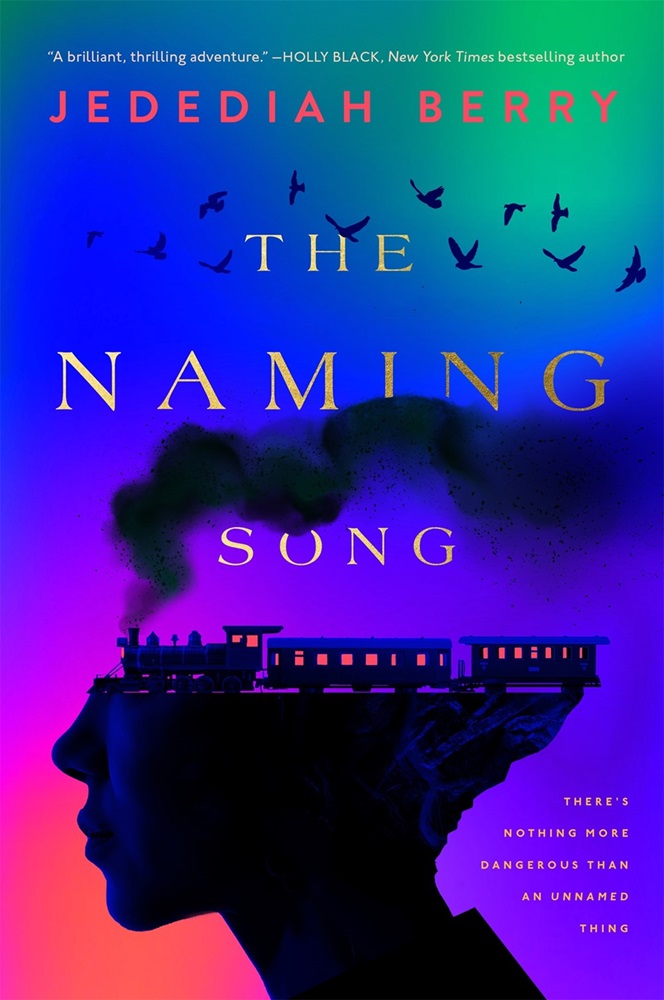
Genres: Adult, Fantasy, Queer Protagonists
Representation: Bi MC
PoV: Third-person, past-tense
ISBN: 1250908019
Goodreads

There's nothing more dangerous than an unnamed thing
When the words went away, the world changed.
All meaning was lost, and every border fell. Monsters slipped from dreams to haunt the waking while ghosts wandered the land in futile reveries. Only with the rise of the committees of the named--Maps, Ghosts, Dreams, and Names--could the people stand against the terrors of the nameless wilds. They built borders around their world and within their minds, shackled ghosts and hunted monsters, and went to war against the unknown.
For one unnamed courier of the Names Committee, the task of delivering new words preserves her place in a world that fears her. But after a series of monstrous attacks on the named, she is forced to flee her committee and seek her long-lost sister. Accompanied by a patchwork ghost, a fretful monster, and a nameless animal who prowls the shadows, her search for the truth of her past opens the door to a revolutionary future--for the words she carries will reshape the world.
The Naming Song is a book of deep secrets and marvelous discoveries, strange adventures and dangerous truths. It's the story of a world locked in a battle over meaning. Most of all, it's the perfect fantasy for anyone who's ever dreamed of a stranger, freer, more magical world.
I received this book for free from the publisher via NetGalley in exchange for an honest review. This does not affect my opinion of the book or the content of my review.
I tried and tried and tried, but this is mind-numbing.
The premise is amazing, and the beginning was strong; I loved learning about the courier’s work, taking words and ‘delivering’ them by experiencing their definitions. The idea of monsters coming from peoples’ dreams was great, and so was using ghosts as both labour force and fuel source.
But for a fantasy about the power of language, Berry’s prose isn’t powerful, and it’s definitely not my flavour of beautiful. I never felt wonder or awe, I never felt the magic. Reading this was like trudging through thick, heavy mud: exhausting. It wasn’t long after the opening before every reading session became a struggle to keep my eyes open. If I described the plot to you, it would absolutely sound like Things Were Happening – but somehow it felt like nothing was happening, like a story was being stretched so much longer than it should have been. Naming Song would have made a great short story, maybe a novella; it should never have been the almost 400 pages it is in hardback.
The rule is, if I don’t care how a book will end by 20%, I DNF. Well, I broke the rule again; I made it to 60% of Naming Song, and I deeply regret all the time and spoons I wasted getting that far. This was plodding, boring, passionless despite having so many reasons to be burning with emotion; it ignored the various bits and pieces and ideas that had the potential to be genuinely interesting, and instead obsessed itself with a council I was supposed to believe were villains even though I was never shown any actual villainy. (Them chasing the courier does not make them evil: they think she’s a murderer! With really good reason, actually! I would also believe she was the murderer if we hadn’t had her POV!)
And my gods, the Le Gasp reveal about the origins of the Sayers (the aforementioned council): the first Sayers used to be waste pickers. Um, okay? Why does that matter? Why would I give a fuck? Why is everyone acting like this is some Terrible Scandalous thing??? A) being a waste picker isn’t evil, it’s not like they were slavers or something, so why would I judge them for that? and B) that was generations ago, why should it affect my opinion of the current Sayers? It was utterly bizarre, and not in a fun way.
The characters all seemed so…muted. The whole book did, actually. As if someone had washed out all the colours. I guess that’s what I meant by ‘passionless’. It was impossible to care about any of it, because none of it felt real, none of it mattered. Even the things that were definitely supposed to matter.
Honestly I wish we’d just gotten a story about the courier delivering words. I would have been happy with just that. But the attempt at More Important Plot was just embarrassing.

Genres: Adult, Fantasy, High Fantasy
PoV: Third-person, past-tense; multiple PoVs
Published on: 8th October 2024
ISBN: 1250895340
Goodreads

Blood of the Old Kings begins an epic adventure in which three strangers journey through a vast Empire that uses the power of dead wizards to conquer and subdue, from award-winning author Sung-il Kim and translated by the highly-acclaimed Anton Hur.
Powered by the corpses of sorcerers, the Empire has conquered the world. It claims to have brought peace and stability to its conquered lands, but some see that peace for what it is—a lie—and will give everything in the fight against it.
Loran is desperate for revenge after the Empire killed her family, so much so that the swordswoman climbs the volcano where the legends say an ancient dragon slumbers and leaps in. She finds that the legends are true, and Loran leaves the mountain with a sword made of dragon’s fang and a great purpose before her.
Cain arrived in the Imperial Capital lost and orphaned, and it’s only thanks to the kindness of a stranger-turned-mentor that he survived on the city’s streets. When his friend is found murdered, he will leave no stone unturned to find those responsible, even if it means starting a war.
Arienne’s future has never been in question—born a sorcerer, she’ll be a Power Generator for the Empire upon her death. But when she starts to hear the voice of a powerful necromancer in her head, she realizes the only thing more terrifying than dying for the Empire is never getting to truly live in the first place.
When peace is a lie, there is power in truth—and as Loran, Cain, and Arienne hunt for answers in their own lives, any one of their small rebellions could be the stone that brings the Empire toppling down.
I received this book for free from the publisher via NetGalley in exchange for an honest review. This does not affect my opinion of the book or the content of my review.
I don’t think this is a bad book at all, but it’s just not gripping me. The opening was amazing, and there are one or two details that are really interesting – I love how each nation had completely different magics before the empire came! We don’t see that often at ALL – usually magic is magic, more or less the same for everyone, but here the sorcerers of each country had wildly different abilities; in one place they were shapeshifters, in another they had magic words… It’s the one thing about this world that I really wanted to know more about.
But it wasn’t the focus at all, and the rest of the book just…felt very okay? I think if you like High Fantasy, you’ll probably enjoy this, but I was hoping that Blood would be bringing influences I haven’t seen before – the author is South Korean and this was written in his native language before it was translated – but I wasn’t getting any of that. Blood just doesn’t strike me as substantially different from the American/British High Fantasy of the 90s, which was never my thing.
There are a few hints here and there that this book might eventually reveal itself to be more unique…but I wasn’t willing to keep reading to find out if that was actually the case. If I find other reviews saying that’s so, I might be willing to try this again, but the fact remains that I have zero interest in where most of the plotlines are going. Nothing about Cain’s story grabbed me; Loran, the woman on the cover, seemed to have the most promising arc but wow did I hate the allies she fell in with; and while Arienne’s plotline rapidly became the most interesting to me (she’s the runaway sorcerer) I didn’t care about what might happen to her. I didn’t care about any of the characters for their own sake, found them pretty dull and normal individuals. Nothing about any of them stood out after reading the first third of the book…so why keep going?
Like I said: if you do routinely enjoy High Fantasy, you have a much better chance of enjoying this than I did. It just doesn’t seem to be for me.
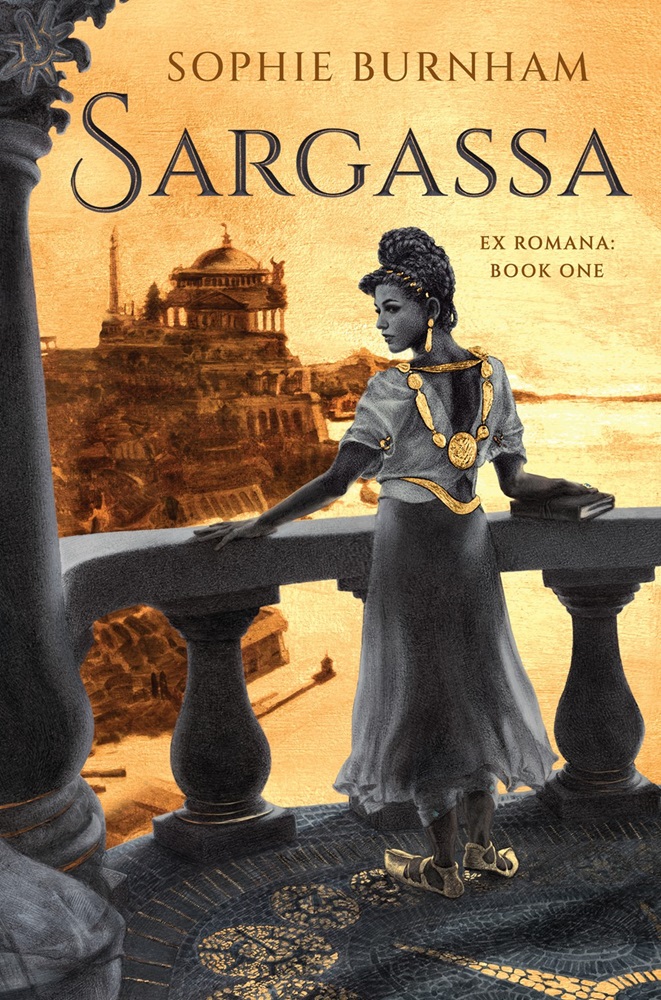
Genres: Adult, Queer Protagonists, Sci Fi, Speculative Fiction
Representation: Bi/pan MC, sapphic MCs, nonbinary MC
PoV: Third-person, present-tense; multiple PoVs
Published on: 8th October 2024
ISBN: 0756419379
Goodreads

An unlikely group of rebels are ready to burn down the empire in the first book in a new speculative trilogy that explores gender, sexuality, and oppression within an empire teetering on the brink of rebellion
Told from multiple POVs: a young heiress, an undercover spy, a bastard brother and a fugitive who has history with all three, Sargassa equal parts political intrigue, queer romance, and revolution
Selah Kleios is twenty-two years old and suddenly one of the most important women in the empires. The role of Imperial Historian is her birthright, something she’s been preparing for since birth—but she was supposed to have more time to learn the role from her father, the previous Historian. In the wake of her father’s sudden and shocking assassination, Selah finds herself custodian of more than just the Imperial Archives, the towering central library that safeguards all collective knowledge of the Roman Imperium and its client empires. There’s also the question of the two puzzling classified items her father left in her care—an ancient atlas filled with landscapes that don’t exist, and a carved piece of stone that seems to do nothing at all.
Soon, though, it becomes clear that the Iveroa Stone is more than just a slab of rock. With the reappearance of an old lost love who’s been blackmailed into stealing it for an unknown entity, Selah finds herself in a race to uncover the mysteries the Stone holds. But she isn’t the only one with an interest in it—she’ll have to contend with the deputy chief of police, an undercover spy, and her own beloved half brother along the way. What begins as an act of atonement and devotion ultimately pulls her into the crosshairs of deep state conspiracy, the stirrings of an underground independence movement, and questions that threaten to shake the foundational legitimacy of Roma Sargassa’s past, present, and future.
I received this book for free from the publisher via NetGalley in exchange for an honest review. This does not affect my opinion of the book or the content of my review.
I kept dutifully reading Sargassa because the prose is perfectly good and the worldbuilding is excellent, and it was exploring themes I care about – but recently I hit 68% and woke up to the fact that I didn’t know where this was going and did not care.
Like Blood of the Old Kings, I don’t think it’s bad. But besides all the MCs being some flavour of queer, Sargassa doesn’t seem to be doing or saying anything new – empire is bad, institutionalised oppression is EXTREMELY bad, cops are the fists of the ruling class, privilege is a thing which exists and we can do a lot of harm with it. I think Sargassa could be a helpful wake-up call for readers who’ve never thought about these things before, but there wasn’t much for me to sink my teeth into. The characters and their storylines weren’t interesting to me; the various injustices they face were rage-inducing because those things are inherently rage-inducing, not because I cared that they were happening to these characters in particular.
And I can’t put my finger on why, but wow this book felt slow. I think it might be that so many little (or relatively little) things were happening, they slowed down any progress on the bigger plot, bogged us down in stuff I didn’t care about. At 68% no progress at all had been made on who murdered the previous Historian, for example; the characters were all distracted by other things. Some of which mattered to the development of those characters, sure, but didn’t matter to me.
From what I’ve seen of other early reviews, if you’re into Ancient Rome you’ll be delighted by the detailed worldbuilding and how well-thought-out the timeline of this alternate history is. Or if you’re here for examinations of class privilege and seeing oppressed people slow-burn turn on the system out to keep them down, you might have a good time with Sargassa.
If neither of those things interests you, I’m not sure you should bother. It’s not bad; it’s fine. But why waste your time reading a book that’s just fine, when there are so many greats out there?

Genres: Adult, Horror, Queer Protagonists, Historical Fantasy
Representation: M/M, Northern Indian secondary cast
PoV: First-person, past-tense
Published on: 8th October 2024
Goodreads

A spine-tingling, queer gothic horror debut where two men are drawn into an otherworldly spiral, and a journey that will only end when they reach the darkest part of the human soul.
“The Black Hunger is a bleak, gothic masterpiece. A devastating exploration of humanity's capacity for evil." – Sunyi Dean, author of The Book Eaters
John Sackville will soon be dead. Shadows writhe in the corners of his cell as he mourns the death of his secret lover and the gnawing hunger inside him grows impossible to ignore.
He must write his last testament before it is too late.
It is a story steeped in history and myth - a journey from stone circles in Scotland, to the barren wilderness of Ukraine where otherworldly creatures stalk the night, ending in the icy peaks of Tibet and Mongolia, where an ancient evil stirs.
Praise for The Black Hunger: "A terrifying gothic journey to the place where the very cruellest, hungriest creatures hide in the snow, and wear our faces. This is a magisterial debut." - Michael Rowe, author of Wild Fell
I received this book for free from the publisher via NetGalley in exchange for an honest review. This does not affect my opinion of the book or the content of my review.
I want to try Black Hunger again at a later date, because it’s very well-written, and it’s utilizing Buddhist…folklore? Not sure if that’s the right term. My point is, I don’t read books featuring Buddhism very often at all, and I don’t think I’ve ever read anything set in Sikkim, aka northern India. That’s infinitely more interesting to me than another rehash of Medieval Europe!
Black Hunger is very polished, and reads like many of the best historical fiction novels – the attention to detail is fabulous, and I was amused at how Pullen managed to justify having a main character with closer-to-modern sensibilities than most people of the time period (particularly most Brits of the time period) ever would have had. Unfortunately, I found that main character – John – extremely bland. His one defining trait – his passion for ‘the Orient’ – doesn’t really come through; I never felt it, and even though we’re reading his first-person narration, I didn’t see any actual appreciation of the culture or peoples or landscapes, once he was sent to Sikkim. I adore passionate characters, especially if they’re passionate about something I’m not; passions make you inherently interesting, and the best characters all have them. But John’s felt – like it was just told to us, not shown. And some of that might be the framework – John is writing all this while he waits to die, so no, he probably wouldn’t write pages and pages of why he loves this country, this spirituality, this language so much. He doesn’t have time. But that doesn’t change the fact that it makes for a very meh reading experience.
The Big Bad (at least, so I gather from the first 20% of the book; no telling what might be revealed later on) is a sect of heretical Buddhists called the Dhaumri Karoti. This group is supposed to be extinct by the early 1900s in which Black Hunger is set, but the reader is definitely meant to be suspicious that they have in fact managed to survive. How do you be a heretical Buddhist? Well, these ones want to bring about the end of all life on earth, which, yep, I’m good with calling that a heresy (even if I can kind of follow their reasoning – it’s always a nice surprise when you can understand the villains, even when you disagree!) As far as I can tell, the Dhaumri Karoti are entirely fictional, and I admit that I feel a little weird about that; is it okay to invent a heresy, and thus villains, in a religion/spirituality that’s so poorly understood in the West? I’m not claiming it’s wrong, I just don’t know if it’s a great move. And it left me pretty uncertain about whether I could trust Pullen’s depictions of anything outside historical Britain. Has all of this been done respectfully? Are the depictions of actual places and people at all accurate? I’m not qualified to say.
Between a kind of meh MC, and not feeling the love for the setting through said MC, there wasn’t really much for me to enjoy here. Objectively, I think a lot of it is great, on a technical craft level – but after the first little bit (I can’t say ‘first few chapters’, because there aren’t any) I lost interest. It just…doesn’t have any heart to it? If that makes sense? And while I don’t read Horror often, I do think Black Hunger was taking forever to get to the scary parts.
Bonus: telling us in the first pages that the love interest is dead at the time of writing is not going to make me invested in the ship, actually? Which made the love story part another thing that didn’t engage me.
…Maybe I won’t try it again. I’m mildly curious about the Dhaumri Karoti, but nothing was happening plot-wise a full fifth of the way through the book, I was very bored of the ‘here is the munitae of how I did my dull government job for years and years’, and I felt cast adrift with nothing – not the characters, not the passions, nothing – to anchor me to the story.
I have too many things to read to keep pushing through with something I don’t care about.
If slow-burn historical Horror is your thing, Pullen can at least guarantee you a setting you probably haven’t seen before?
Perhaps next month will have fewer DNFs!
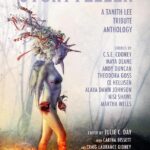


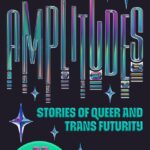
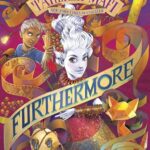
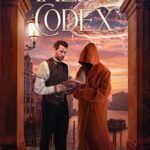
Oooh, rough month. Immortal Dark sounds frustrating, and The Grand Ellipse would have struck me the exact same way. Yikes.
Sargassa was a DNF for me as well, but you gave it more of a chance than I did.
Eh, I read lots of great books too!
Oh??? I couldn’t find your thoughts on Sargassa on your blog, if you wrote them up could you link me? I’d love to know exactly what you thought!
I wonder if some of the syntax choices in Immortal Dark are due to the author being Ethiopian? Perhaps her style is just from speaking other languages. I suggest this because I’ve struggled with some syntax choices in books by other African authors and had to work to get used to their rhythm.
Oh, that could easily be it! I don’t know if it’s fair to hold that against her, then… Maybe I’ll edit to change my review from ‘bad’ prose to ‘prose I didn’t like’? That might be fairer.